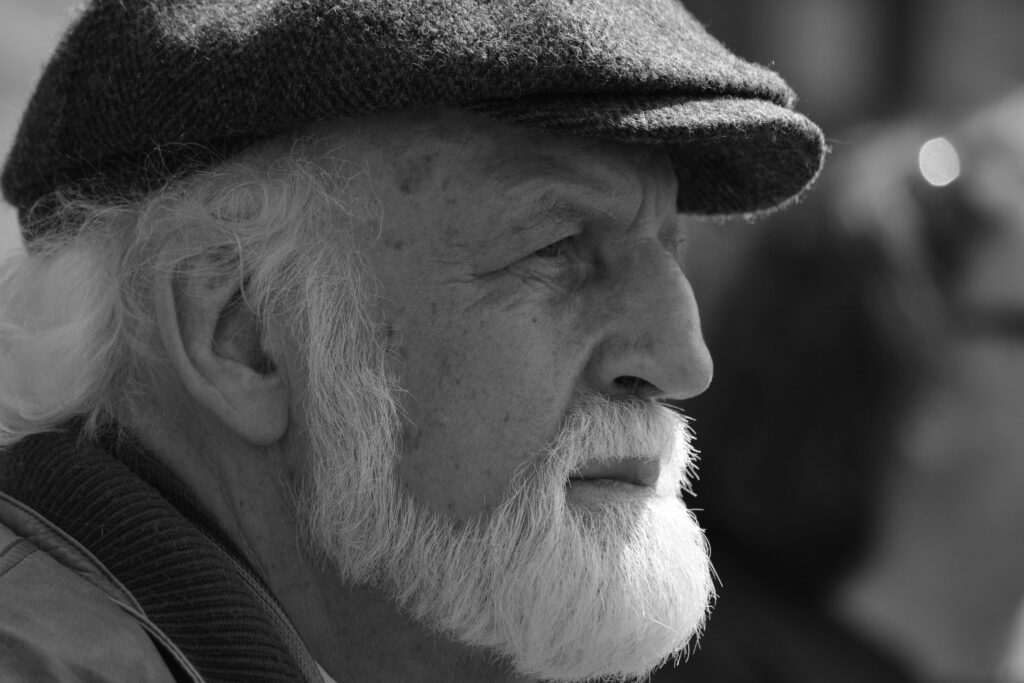
Healthcare systems worldwide face mounting challenges as populations age. In 2020, 18% of the UK population were older than 65. By 2030 it will be 24%. As people live longer the complexity of their needs increase due to a range of chronic conditions that are on the rise such as diabetes and obesity. By 2040, it’s estimated that 1 in 5 people will be living with a major illness. While our lifespans are longer than previous generations, our healthspans aren’t extending along with them.
To meet these growing needs, the Office for Budget Responsibility projects that UK-wide public spending on adult social care needs to increase by3.1% per year in real terms over the next decade. But local authorities already spend £23 billion a year on adult social care, that’s more than 40%of their spending on services. Self-funded care amounts to another £8.3 billion a year, and the value of unpaid care by family and friends is estimated at more than £100 billion a year.
This isn’t just a UK problem. Across the world the cost of Health & Social Care is consuming more and more with total spending on health alone topping $10 trillion. That is double the amount that is spent on IT globally. And it’s technology that has a role to play in overcoming the challenge.
By embracing these innovations, we are not just supporting individuals, we are revolutionising health and care itself
Skills for Care estimate that an extra 440,000 roles may be needed by 2035 to deal with the growth of population aged over 65. This is in a sector that already struggles to recruit and retain staff; in 2023, 10% of roles in adult social care were vacant. But there is another way.
Predictive and preventative technology solutions, as well as more personalised treatments, can reduce the demand on health and care services, improve the quality of care, and increase quality of life across the entirety of our lives.
Body and mind solutions
Across the world, technology is being developed to address the challenges posed by aging populations:
- Fall prevention systems can predict and prevent falls amongst the elderly, reducing hospital admissions and saving billions annually.
- Real-time health monitoring can spot negative trends and help us course-correct before damage is done.
- Detailed air quality measurement in buildings can help us to minimise exposure to harmful pollutants, a major issue in cities, safeguarding respiratory health and extending lifespans.
- Rapid dementia screening has the potential to support early intervention, delaying disease progression and improving long-term patient outcomes.
- Mental health innovations, such as virtual cognitive screening and stress-reduction tools, offer further support for dementia patients.
By facilitating early detection and personalised interventions these technologies improve patient care and reduce long-term healthcare costs.
Preventions that bite
Dental medtech is an interesting example of where we can be more preventative.
Technology is delivering advancements in oral healthcare, shifting the focus toward early detection and preventative treatment. Advanced scanning and imaging techniques can identify conditions such as tooth decay and gum disease before they become severe, significantly reducing the need for costly and invasive emergency procedures.
There’s also a growing body of evidence that suggests poor oral health is linked to heart disease and dementia. This hints at the significant benefits from the adoption of more preventative oral healthcare technology.
The economic ripple effect of healthtech innovation
Innovation in health and care goes beyond improving patient outcomes. It also enhances local productivity and drives economic growth by creating job opportunities for communities in need. Recent data shows that around 20% of the UK’s working-age population is out of work due to poor health, impacting not only individuals but also their families and communities.
Investing in a region like Thames Freeport serves a dual purpose: it provides a disadvantaged population with solutions that can improve people’s lives and health outcomes and, in turn, enable them to re-enter the workforce. At the same time, it offers long-term unemployed individuals the chance to upskill and adapt to emerging technologies, building a skilled workforce for the future. Furthermore, building a thriving ecosystem can generate high-paying jobs, strengthening the local economy.
This approach has the potential to reduce financial strain on families, local governments, and the NHS in the long run, freeing up resources that can be reinvested into other vital areas of the local economy.
Pioneering work at Thames Freeport
Healthtech accelerators are a key component of turning cutting-edge ideas into real-world impact but, without localised support, they often fail to transfer that wellbeing to the communities they work right next to. Thames Freeport is putting this into practice by supporting startups and scale-ups with funding, mentorship, and access to health and care networks that can deploy solutions to directly improve the quality of life and wellbeing of residents in the region. This initiative is not just advancing technology, it is making a tangible difference in people’s lives.
Companies and technologies supported include LBSTech, with their solution WheelAR. This is an Augmented Reality phone app designed to help wheelchair users navigate the region using the most accessible routes. Another example is Piquant, an air quality monitoring system that’s designed to help building owners/operators manage and improve the air quality in their building. For the elderly residents of care homes who are disproportionately affected by poor air quality, this simple technology can inform behaviour change which will have a huge positive impact on their lives. In addition to their strong social impact, these pioneering technology companies, and others like them, stand to benefit the region economically over time.
By embracing these innovations, we are not just supporting individuals, we are revolutionising health and care itself. The preventative approach enhances quality of life, alleviates long-term pressures on the councils and the NHS, and fosters a more sustainable and efficient health and care system. The future of health is no longer just about treatment, it’s about prevention, empowerment, and collective well-being.

Daniel Avery
Daniel Avery is Head of Venture Building at Rainmaking, creating and delivering commercial ventures to decarbonise economies.



